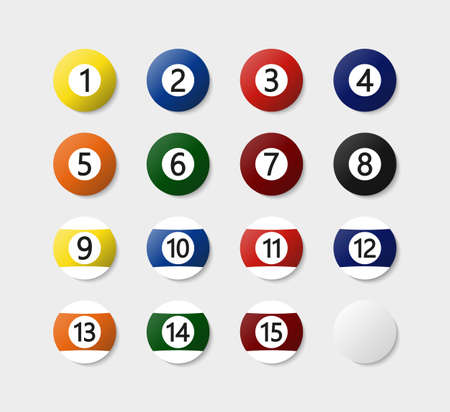Introduction to Astrology in the UK
Astrology has held a distinctive place within British culture for centuries, weaving together elements of folklore, history, and contemporary belief. While astrology’s roots can be traced back to ancient civilisations such as Babylon and Egypt, its journey through the British Isles has imbued it with a unique identity shaped by local traditions and the nation’s social evolution. Unlike some global counterparts that may focus more heavily on spiritual or mystical interpretations, British astrology is often characterised by a pragmatic approach—balancing scepticism with curiosity. The revival of interest in astrology during the 20th century, propelled by newspaper horoscopes and popular media, cemented its mainstream appeal across the UK. Today, astrology remains a popular tool for self-reflection, conversation, and even decision-making among Britons. Its enduring presence can be seen in everything from daily tabloid columns to bespoke birth chart readings offered by local astrologers. In exploring your birth chart from a British perspective, you not only engage with celestial archetypes but also participate in a living tradition that reflects the values and idiosyncrasies of UK society. This guide aims to demystify astrology’s role in Britain, highlighting both its historical significance and modern relevance.
2. Unpacking the British Birth Chart
To truly grasp astrology in a UK context, it is essential to dissect the core components of a birth chart—often referred to as a “natal chart” by British astrologers. The British approach emphasises precise terminology, a blend of traditional and modern conventions, and methods that reflect both historical roots and contemporary practice.
Key Components of a British Birth Chart
A typical birth chart comprises several main elements, each holding specific significance. Below is a structured overview commonly used by British astrologers:
| Component | Description | British Terminology |
|---|---|---|
| Planets | The celestial bodies representing energies and drives (e.g., Sun, Moon, Mercury). | “Planets” (includes Sun and Moon as luminaries) |
| Zodiac Signs | The twelve signs through which planets travel, each with unique traits. | Aries to Pisces; often using traditional glyphs and English names |
| Houses | Twelve segments of life areas (career, relationships, etc.) defined by the Ascendant. | 1st House (Ascendant), 10th House (Midheaven), etc. |
| Aspects | The angular relationships between planets, shaping how energies interact. | Conjunction, Square, Trine, Opposition, Sextile (using exact degree notation) |
| Angles | Key points: Ascendant (rising sign), Descendant, Midheaven (MC), Imum Coeli (IC). | Often referred to by their Latin terms in British texts |
Terminology & Conventions Unique to the UK
- Date Format: Dates are written as day/month/year (e.g., 6/4/1990 for 6 April 1990).
- Time Zone Awareness: British astrologers adjust charts for GMT or BST depending on the time of year and location within the UK.
- House Systems: The Placidus system is most prevalent in the UK, though some traditionalists favour Whole Sign or Regiomontanus houses.
- Cultural References: Interpretations may incorporate references familiar to British society—such as weather metaphors or national history.
Methods Favoured by British Astrologers
The analysis begins with calculating the precise Ascendant based on birthplace and local time—a task requiring careful attention to daylight saving adjustments in the UK. Next comes delineating planetary positions within houses and signs. Interpretation typically starts with the Sun, Moon, and Ascendant before moving on to aspects and house rulers. A logical sequence is followed: from general temperament (sign placements) to specific life themes (house emphasis) and finally intricate dynamics (aspects).
A Quick Reference Table: Essential British Birth Chart Features
| Feature | British Preference |
|---|---|
| Date/Time Entry | D/M/Y format; 24-hour clock common for accuracy |
| Main House System | Placidus (modern); Regiomontanus/Whole Sign (traditionalists) |
| Zodiac Notation | English names and glyphs; degrees always listed first (e.g., 15° Taurus) |
This systematic approach ensures that every element of a birth chart is interpreted within its proper cultural and technical context—reflecting both the heritage and ongoing evolution of astrology in Britain.

3. Understanding the Zodiac: British Perspectives
When interpreting astrology in the UK, it’s essential to recognise how British culture and language colour the characteristics of each zodiac sign. Below, we break down the twelve signs with uniquely British idioms, attitudes, and societal nuances, offering a local twist to traditional astrological profiles.
Aries (March 21 – April 19): The Go-Getter
In Britain, Arians are often described as “full of beans”—always ready to get stuck in and never afraid of a challenge. Their pioneering spirit reflects the classic British admiration for “having a go,” while their directness may sometimes be seen as “a bit forward.”
Taurus (April 20 – May 20): The Steadfast
The Taurean is considered “solid as a rock” in UK terms—reliable, practical, and rarely ruffled by drama. They’re known for enjoying “the finer things in life,” whether that’s a proper cup of tea or a well-tended garden. British society admires their dependability and “no-nonsense” approach.
Gemini (May 21 – June 20): The Conversationalist
Geminis are seen as the quintessential “chatterbox,” always ready for a natter over a pint at the local pub. Their wit and versatility fit perfectly with Britain’s love of wordplay and banter. However, they might be gently teased for being “here today, gone tomorrow.”
Cancer (June 21 – July 22): The Homebody
Cancerians embody what Brits call “home is where the heart is.” Deeply attached to family and tradition, they’re most content when pottering around at home or hosting a Sunday roast for loved ones. Their caring nature is often described as having a “heart of gold.”
Leo (July 23 – August 22): The Showstopper
Leos bring a touch of drama to the stiff upper lip culture—often called “the life and soul of the party.” They love being centre stage but are also recognised for their generosity and loyalty. In the UK, their confidence is admired but tempered by an expectation to avoid appearing “too big for your boots.”
Virgo (August 23 – September 22): The Perfectionist
Virgos are often considered “on the ball”—detail-oriented and quietly efficient, much like the archetypal British organiser behind every successful village fete. Their fussiness may be described as being “a bit particular,” but their helpfulness is always appreciated.
Libra (September 23 – October 22): The Diplomat
Librans epitomise British politeness—always striving for harmony and fairness, known for being “fair play” advocates. Their charm makes them popular guests at any gathering, though some may joke that they’re prone to sitting on the fence.
Scorpio (October 23 – November 21): The Intense Investigator
Scorpios in Britain are often seen as having “hidden depths”—private yet fiercely loyal friends. Their intensity can be both intriguing and intimidating; the phrase “still waters run deep” fits them perfectly in UK culture.
Sagittarius (November 22 – December 21): The Adventurer
Sagittarians embody wanderlust—always up for a new adventure or an impromptu road trip to the seaside. In British slang, they’re described as having “itchy feet,” relishing freedom and frank discussion but occasionally ruffling feathers with their blunt honesty.
Capricorn (December 22 – January 19): The Achiever
Capricorns are respected as “grafters”—hard-working and ambitious individuals who keep calm and carry on through adversity. Their dry humour and sense of duty resonate strongly within traditional British values.
Aquarius (January 20 – February 18): The Innovator
Aquarians are known as “free spirits” in Britain—quirky, original thinkers who march to the beat of their own drum. They’re admired for championing causes and thinking outside the box but may be affectionately ribbed for being a bit eccentric.
Pisces (February 19 – March 20): The Dreamer
Pisceans are often described as being “away with the fairies,” highlighting their dreamy nature and creative flair. In British society, their empathy is valued, though they might be reminded not to let others take advantage of their kindness.
The Cultural Lens on Astrology
The UK’s unique blend of tradition, irony, and understated emotion gives each zodiac sign its own local flavour. By considering British idioms and social expectations, astrologers in the UK add depth and relatability to birth chart interpretations, ensuring astrology remains both personal and culturally resonant.
4. Houses and Planets: The UK Astrological Lens
To truly understand your birth chart within the British context, it is essential to explore how the astrological houses and planetary influences interact with distinct local values, traditions, and historical touchpoints. The classic meanings of the twelve houses and planets remain foundational, but their interpretation in Britain often takes on unique cultural shades, informed by centuries of monarchy, class systems, and regional diversity.
Astrological Houses: British Cultural Context
The twelve houses represent different areas of life, yet their significance can be subtly influenced by British societal structures and history. For instance, the Fourth House—traditionally linked to home and ancestry—may evoke strong associations with heritage, stately homes, and family lineage in a UK reading. Meanwhile, the Tenth House (career and public image) might be interpreted through the lens of Britains historical emphasis on social status and professional reputation.
| House | Traditional Meaning | UK Nuance |
|---|---|---|
| 1st (Ascendant) | Self & identity | Personal presentation; British reserve or eccentricity |
| 4th | Home & roots | Ancestry, heritage estates, family legacy |
| 7th | Partnerships | Marriage traditions, civil partnerships, social contracts |
| 10th | Career & status | Professional standing; class-conscious ambition; public roles like MPs or Lords |
Planetary Influences: A British Perspective
The planets symbolise core energies in a birth chart, but their expression is often coloured by local customs and collective experiences. For example, Saturns association with discipline resonates with Britains historic “stiff upper lip” ethos—a cultural value rooted in endurance through adversity. Similarly, Venus may reflect not just personal attraction but also etiquette in relationships and the subtle art of British courtship.
| Planet | Key Traits | British Interpretation |
|---|---|---|
| Sun | Ego, vitality | Pride in regional identity; national celebrations (e.g., Royal events) |
| Moon | Emotions, instincts | Nostalgia for the good old days; connection to homeland rituals like afternoon tea |
| Saturn | Structure, responsibility | “Keep calm and carry on” mentality; respect for tradition and duty |
| Venus | Love, beauty | Manners in romance; appreciation for gardens and countryside aesthetics |
| Mars | Drive, aggression | Sarcastic humour as an outlet for assertiveness; sportsmanship (e.g., football culture) |
The British Chart: History Meets Astrology
A uniquely British approach to astrology considers not only ones personal story but also generational influences—such as the impact of wartime resilience or royal milestones—woven into planetary placements. By recognising these layers of meaning within houses and planets, astrologers in the UK can offer insights that are both personally relevant and deeply rooted in shared cultural experience.
5. Finding and Interpreting Your Chart Locally
Accessing Your Birth Chart with UK Resources
When delving into astrology within the British context, it is essential to utilise resources and practitioners attuned to the cultural nuances and astrological traditions of the UK. Begin by gathering your precise birth details: date, exact time, and location within the United Kingdom. With this information, several reputable British websites offer free or detailed birth chart generation services. Notably, Astrology.co.uk, AstroSeek (UK settings), and The Astrological Association of Great Britain provide user-friendly platforms for creating your natal chart, ensuring calculations reflect UK time zones and conventions.
Recommended British Astrologers
For a more personalised interpretation, consider consulting well-regarded British astrologers who understand local perspectives. Practitioners such as Debbie Frank, Frank Clifford, and organisations like the Faculty of Astrological Studies offer in-depth readings and classes rooted in the UK’s rich astrological heritage. Many also provide virtual consultations, making professional insight accessible across Britain.
Interpreting Results in the UK Context
Once you have your chart, interpreting it through a British lens adds layers of cultural relevance. In the UK, astrology often reflects both traditional wisdom and contemporary sensibilities—balancing classical planetary rulerships with modern psychological insights. Pay attention to how British astrologers emphasise houses connected to community (the 11th), heritage (the 4th), and public life (the 10th), reflecting values embedded in British society. Additionally, terminology may differ; for instance, ‘Ascendant’ is commonly used instead of ‘rising sign’, and references to native locations are specific to towns or counties rather than broader international regions.
Navigating Local Nuances
Finally, consider seasonal timing unique to the UK—such as interpreting solar returns around the Spring Equinox or considering how daylight saving changes might affect your birth time calculation. By using UK-based resources and expertise, you ensure that your astrological exploration is not only accurate but also meaningful within your local cultural framework.
6. Astrology in Daily British Life
Astrology’s influence extends well beyond birth charts and personal horoscopes, permeating various aspects of daily life across the UK. This section analyses how astrological concepts inform daily practices, decision-making, and popular trends within quintessentially British domains such as music, sports, and media.
Everyday Practices and Decision-Making
For many Britons, astrology provides a framework for understanding everyday challenges and opportunities. Consulting daily or weekly horoscopes—whether in newspapers like The Times or digital platforms such as BBC Good Food’s lifestyle columns—has become a routine for those seeking guidance on relationships, work, or even travel. While some approach these readings with a pinch of salt, others use them as a genuine tool for reflection and decision-making, especially during periods of uncertainty. The language of the Zodiac is often used to explain interpersonal dynamics at the workplace or in social gatherings, with phrases like “classic Virgo move” or “such a Scorpio response” sprinkled into casual conversations.
Influence on Music and Popular Culture
Astrology has left its mark on British music culture, where artists frequently reference Zodiac signs in lyrics and album concepts. From pop acts like Adele (a Taurus) subtly channelling her sign’s emotional depth to more explicit nods in songs by contemporary bands, astrology becomes both an identity marker and a source of creative inspiration. Annual events such as Glastonbury Festival sometimes align stage themes or merchandise with celestial motifs, reflecting the public’s appetite for astrological symbolism.
Sporting Rituals and Superstitions
The world of British sport is no stranger to astrological influence. Footballers have been known to consult astrologers regarding match days, while supporters occasionally attribute team performance to planetary alignments or retrogrades. Cricket and rugby fans may joke about Mercury being in retrograde after a surprising loss. These references, though often tongue-in-cheek, reveal how astrology serves as both superstition and shared cultural shorthand within sporting communities.
Media Representation and Public Discourse
Mainstream British media regularly features astrology in columns, podcasts, and television segments. Programmes like BBC Radio 4’s “Beyond Belief” explore its social impact, while tabloids such as The Sun maintain devoted horoscope sections that shape morning routines for millions. In addition to entertainment value, astrology has become a lens through which societal issues are discussed—be it generational differences (with Gen Z’s resurgence in natal chart analysis) or debates around fate versus free will.
Conclusion: A Subtle yet Ubiquitous Presence
In summary, astrology remains a subtle yet pervasive presence in British daily life. It shapes how individuals interpret their experiences, influences creative expression in music and media, adds colour to sporting rituals, and provides a common language for navigating modern Britain’s complexities. Whether embraced wholeheartedly or regarded with scepticism, astrology continues to weave itself into the fabric of contemporary UK culture.


